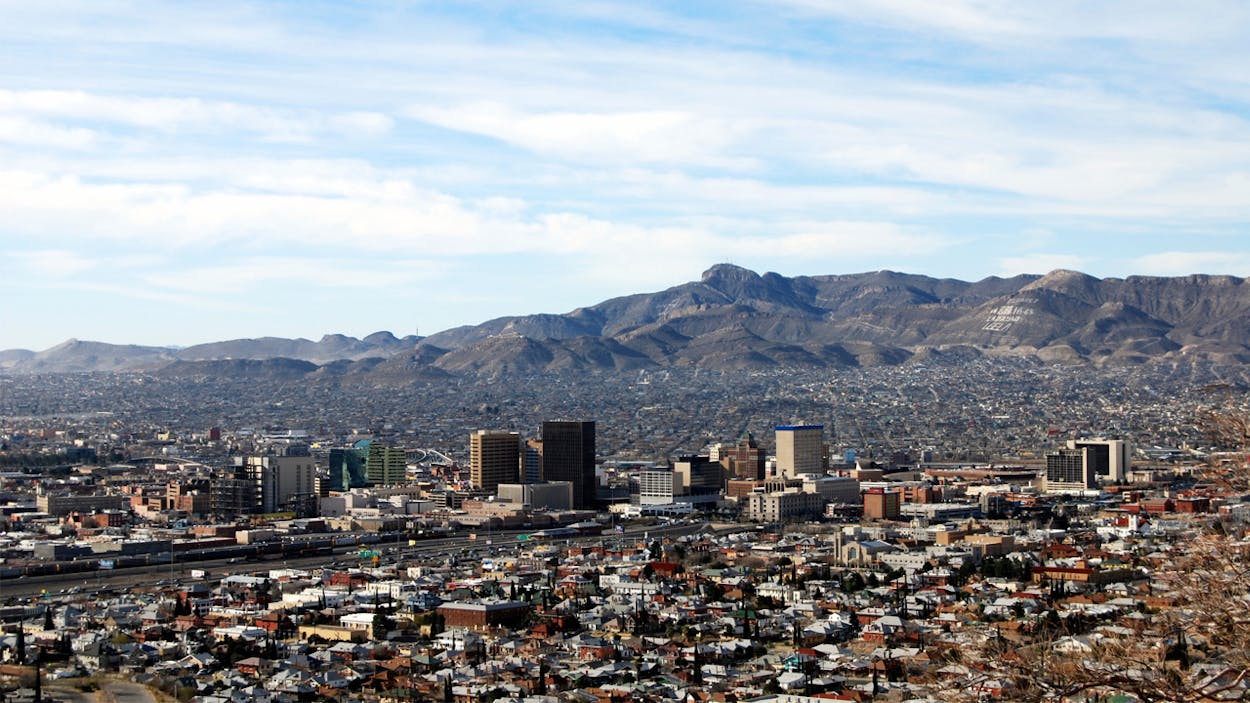Despite the great danger, I journeyed to El Paso yesterday for the Texas Lyceum’s conference on the war on drugs and its impact on the border. El Paso Times reporter Diana Washington Valdez has a preview of today’s conversations. (Also, I have a disclosure: I am a member of the board of directors of the Texas Lyceum, a nonprofit dedicated to developing leadership in Texas.)
“The great danger” I refer to is the danger of appearing to take part in a conversation inspired by the exhortations of that predatory clown, Donald Trump, who is under the flatly delusional belief that “no one” was talking about border security or illegal immigration until he heaved himself into the race for the Republican presidential nomination in June. Barack Obama was well ahead of Trump in this respect: in 2011, the president traveled to El Paso and gave a speech calling for comprehensive immigration reform. Millions of Texans, too, can corroborate my impression that people have been talking about both issues since before the incumbent president and the current Republican frontrunner were. Here’s something I wrote about Obama’s speech at the time:
That is, border security is the challenge of securing America’s border, primarily its southern one, against drugs and trafficked people coming north, and guns going south. Illegal immigration is the challenge of people being in the country without documentation, primarily for economic reasons, where they may distort labour markets and strain public services. The issues are obviously related, but they shouldn’t be as fully conflated as they typically are. Economic migrants are not really a security threat. Most of them are here to work—adult male migrants have a higher employment rate than native-born workers—and although data about violent crime should be considered locally, there’s not much evidence that undocumented migrants are spurring crime…
There are risks to treating economic migrants in general as a security threat, and the chief risk, ironically, is to security; devoting our scarce law-enforcement resources to undocumented immigrants means that those resources are being diverted from the genuine security issues.
Four years later that temperate framework, which until recently was widely accepted even among Texas Republicans, remains sound. The people of El Paso might add that they actually live on the border and therefore have some skin in the game. I’m inclined to believe the ongoing consensus among the city’s leaders and residents that El Paso is among the safest major cities in the United States (if not the safest), because the data supports that contention, as does my own experience. I’ve traveled to the city perhaps a dozen times, and lived to tell the tale, which almost always turns out to be a pleasant one of an interesting and enjoyable visit to a dynamic and diverse city. This morning, as I enjoyed breakfast in this binational borderplex, I asked an El Pasoan about how he feels about his hometown. “This city is unbelievable,” said Maynard Haddad, the owner of H&H Car Wash and Coffee Shop, a widely revered and beloved local institution. “And I fear nothing!” His only grievance was that I didn’t eat my whole omelet. He was not, he told me, a Trump supporter.
Also not a Trump supporter, clearly, was Cesar Blanco, the Democratic state representative who had met me for breakfast. “It’s purely politics,” Blanco said of the border security debate among national Republicans this summer. “It’s bad for business. We on the border are trying to get away from the idea that the border is a war zone. The ‘pro-business party’ is not helping us with that.”
“As a Democrat, I will be the first to say we need a secure border. We need a safe environment for industry and business,” Blanco continued. In his experience, the representative agreed, the border is actually quite safe. But he was apparently reluctant to use Trump’s evidentiary standard, ideologically motivated fabulation: “We have to be able to demonstrate through metrics that’s safe. I can’t do that right now.”
During the Eighty-fourth Legislature, readers may recall, Blanco had proposed a budget amendment that would have required DPS to provide regular data about the work being done during the state’s ongoing border security surge, disaggregated by law enforcement agency. Had the amendment passed, Texans would have been better off for the reason I referenced in 2011—rather than waste scarce resources, we could allocate them more efficiently—and Texas Republicans, who take credit for the border security surge itself, would have been the most likely political beneficiary.
Blanco is not, in other words, an example of a Texas Democrat being unduly resigned to the fecklessness of the state’s Republican leadership. Like the panelists who spoke at the conference this morning at discussions on law enforcement and the judiciary, he’s a person working on the border while under the shadow of a national debate that has never been more derisible. Trump promises to build a “powerful” wall and vows that he will make Mexico pay for it. Most of the other Republicans running dither about whether it’s correct to point out both how ludicrous the idea is and how delusional the author of that statement must be. But Trump’s megaphone has such reach that even Enrique Pena Nieto, the president of Mexico, had to weigh in on this silly idea. Seriously. I’ll have more to say about the latest developments in border security and the drug war after the conference concludes. But fair warning for any politics fans: it may be futile, but I’ll stick to the facts.







